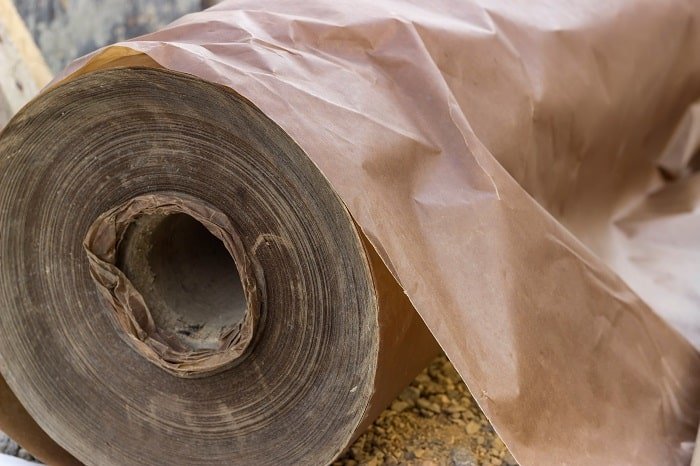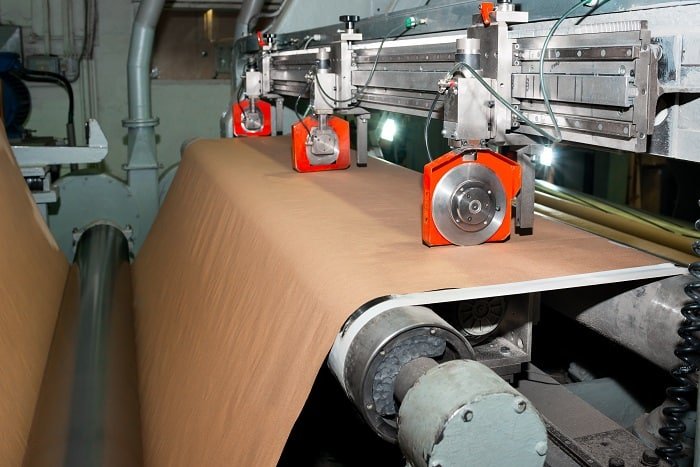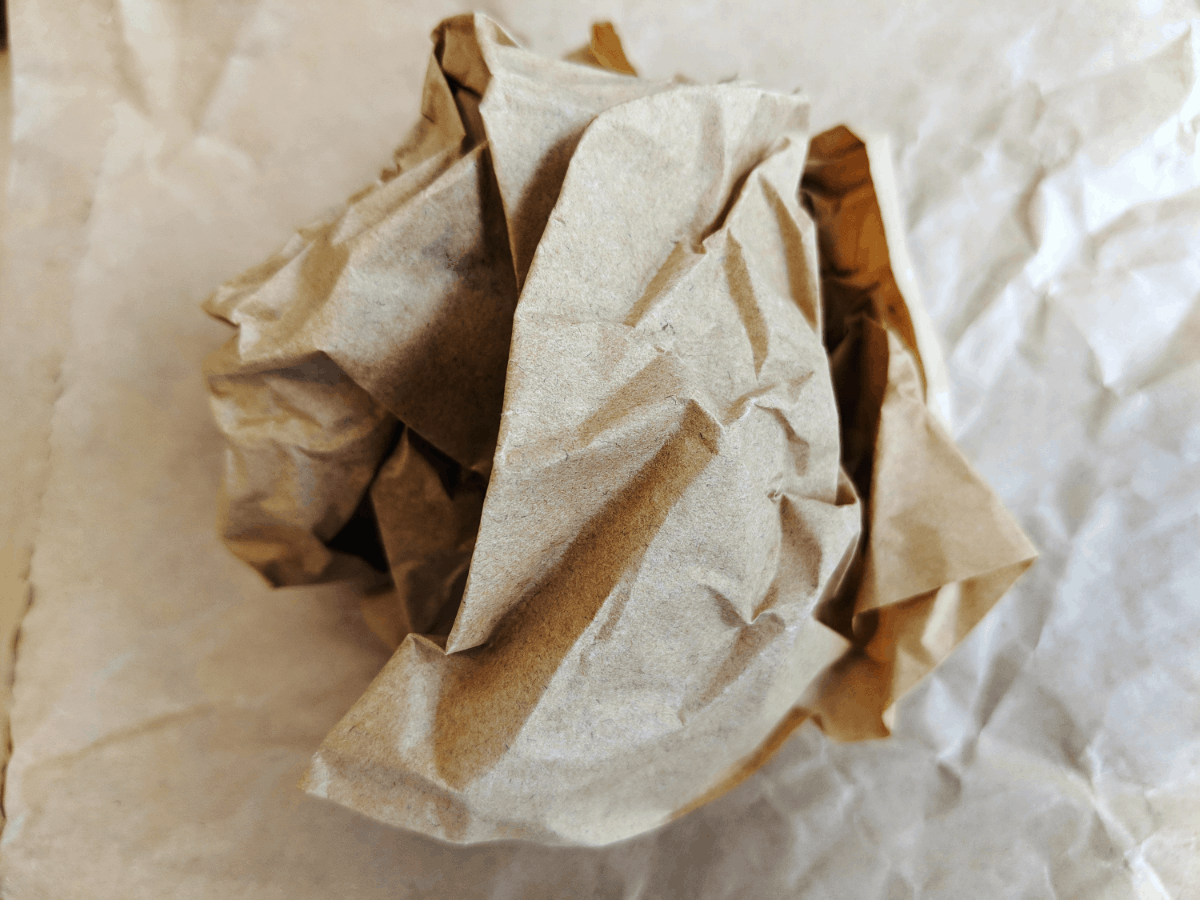I tend to use wax paper quite often when kneading bread or rolling out pie crusts before baking. After all, it’s really helpful in preventing food from sticking onto surfaces, not to mention it has various other uses as well.
If you practice composting and use a wax paper on a regular basis like me, you might ask: can you compost wax paper? Let’s find out.
Can You Compost Wax Paper?
The answer can be either yes or no. If you’re planning to compost your wax paper after use, then you might want to reconsider. A wax paper can be made of either soybean wax or paraffin.
Soybean wax is an organic vegetable wax derived from soybean oil and is most often used in making candles. Upon harvest, the beans are then cleaned, cracked, and processed into flakes where the oil is extracted from. The oil then undergoes hydrogenation which converts unsaturated fats to saturated. This will raise the wax’s melting point, thereby causing it to become solid at room temperature. The finished product is then referred to as soybean wax or simply soy wax.

On the other hand, paraffin wax is derived as a byproduct of oil purification via a dewaxing process which crude oil goes through. It’s commonly used in a variety of applications including candles, cosmetics, commercial items, wax papers, and more.
Now let’s go back to the main topic.
Basically, it’s possible to compost wax paper based on the type of wax used to coat it. Soybean wax is organic; however, since it is a wax, microbes will have a hard time digesting it. On the other hand, petroleum-based is not, and it should be kept away from your compost or even your garden.
Another thing you have to consider is the process used by wax paper manufacturers. Some of them use bleach or chlorine during the papermaking process. While bleach is ideal for destroying pathogens as well as harmful microbes at home, they shouldn’t go into your garden.
This is because it will end up killing all those beneficial microbes which are essential for the composting process. Aside from that, it will also affect your plant’s growth, even kill it altogether.
That said, if you’re planning to place the wax paper into your compost bin, you want to make sure it’s coated with organic soybean wax and comes unbleached. However, you have to keep in mind that wax repels moisture. Therefore, your wax paper will remain in your compost for a little while before being completely decomposed.
Why an Unbleached Paper Matters?
Since paper is generally made from wood, it will appear brown in its natural state. However, to change a paper’s appearance to white (and make it look more appealing), it will have to undergo pulp bleaching – that’s where the problem begins.
Although there are different ways of bleaching, most bleached papers will be treated with some type of chlorine-based bleach. The reason is because chlorine is capable of bleaching paper to give it that really white appearance. Apart from that, it also removes the lignin compound in wood which is the reason why paper gets yellow when exposed to the sun. This is a common case among newspapers (due to this, they are chlorine-free and will, therefore, go well in your compost bins).

The problem with chlorine is that when it binds with compounds like lignin in wood pulp, it will produce dioxins and other byproducts which are highly toxic and can cause damage to living systems. It is for this reason why wax papers consisting of bleached paper are not advised for composting as they can only kill off those beneficial microbes that are vital for composting.
What Are Your Options?
From what we have gathered, we can confirm that wax paper is compostable as long as it’s unbleached and coated with soybean wax. However, if you don’t prefer putting it in your compost bin, you can reuse it instead.
In fact, wax paper can be reused given that it’s not soiled with any food or grease. You can simply clean it and reuse it for another cooking batch. However, do keep in mind that it is not recyclable due to its wax coating. The paper recycling process involves mixing the paper with water then turning it to a slurry.
Unfortunately, wax and water don’t mix, so wax paper isn’t viable for recycling. Once soaked with grease, it can be considered contaminated as it won’t be possible to remove the grease out of it. It’s also impossible to remove the wax layer off the paper to make it recyclable.
That said, another option you can use is simply to dispose of your used wax paper properly and go green instead. As mentioned earlier, go for unbleached paper with a soybean wax coating instead of paraffin. You can also try to reduce your usage of wax paper or opt for cellulose bags which are recyclable paper products that can decompose within 30-90 days.
You may also opt for Ziploc plastic bags which can be recycled at some recycling centers (though you’ll have to check your local recycling center first). Just make sure to check the recycling guidelines in your area if they’re accepting plastic #4.
Alternatively, you can instead cook recipes that don’t rely too much on the use of wax papers or even parchment papers. There’s actually a handful of them you can find out there.
FAQ’s
Can you compost waxed paper?
You can use waxed paper, but there are a few things to keep in mind.
First of all, the wax coating on the paper won’t melt down into the compost. This is good. The wax itself will melt down into the compost, but it won’t harm the bin. The problem comes when the paper melts. If you place a piece of waxed paper on top of the compost bin while it’s heating up, the heat from the heating element will melt the paper.
This means that the paper will begin to emit gases and odors which will eventually have to be vented outside. The compost won’t smell. It just will have some odors emanating from it. The paper is not a barrier to composting. It doesn’t stop anything.
How can you control the smell?
The best way to prevent this is to use a composting bin without any waxed paper on top. The compost will heat up more slowly, which will cause less emissions. This isn’t always possible. Many people use waxed paper because they can put the compost in the bin after they take out the compost material. They don’t want to disturb the compost material. If you do use a composting bin with waxed paper, the best way to prevent this is to put a plastic bag over the top of the bin and then put a lid on the plastic bag. This will cause the paper to become much cooler than the air around it.
You don’t have to wait until the bin is full to put the bag on top. Just leave the bag there until the compost is done. The next way to prevent the smell is to make sure that you keep the bin clean. If you don’t, then the smell will come from the rotting compost materials. It is very important to keep the bin clean so that the materials can break down properly.
How long does wax paper take to decompose?
It depends on the temperature and humidity. If it’s hot outside, your wax paper might be ready to go faster. If it’s cold outside, wax paper might not decompose as fast.
Generally speaking it should take somewhere between 2 to 4 weeks to decompose.
Is the wax on wax paper toxic?
As long as it is food grade wax paper, it isn’t toxic and you can use it for compost with confidence. It may look like it may have harmful chemicals but for the most part you’re good to go.
If you’re wondering about what the thin coating on wax paper is, it is called paraffin wax and can be composted without any problems.
Conclusion
If you just can’t seem to shake off your usage of wax papers, then make sure to go for these eco-friendly options:
- Instead of buying paraffin-coated, bleached wax papers the next time you buy on the local grocery, make sure to go for those coated with soybean wax and are unbleached.
- Or better yet, instead of composting them, throw them into your garbage bin and keep them away from your garden for better measures.
Have you tried placing your used wax papers in your compost bin? What are the results so far? Please let us know in the comments below. Thanks for reading!





